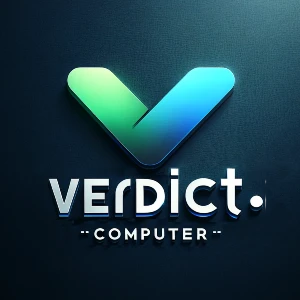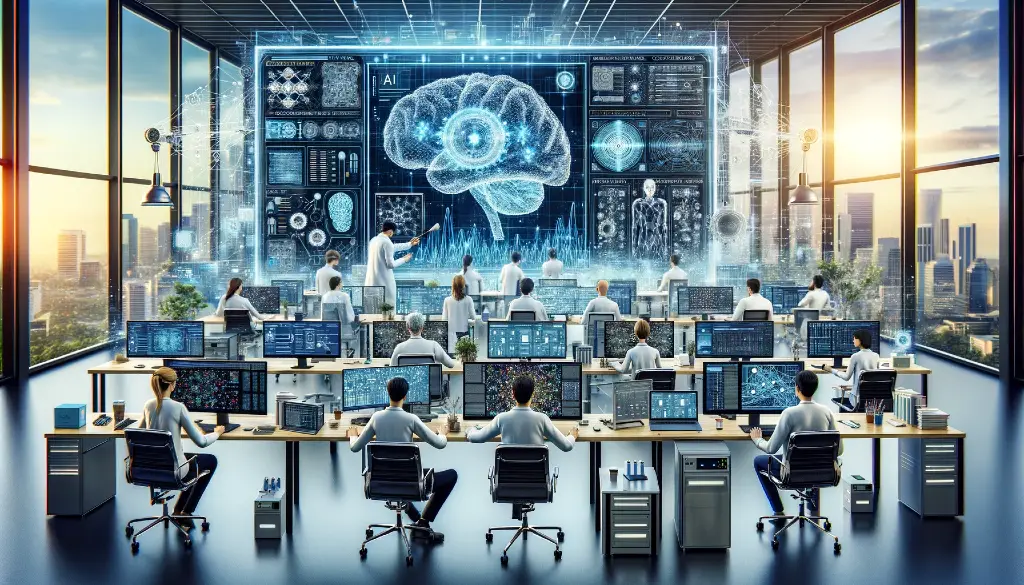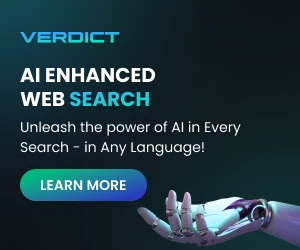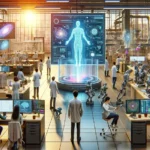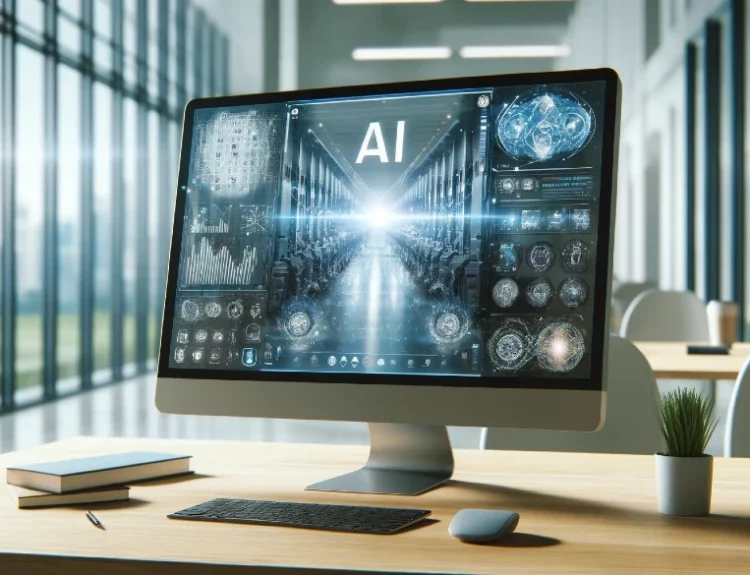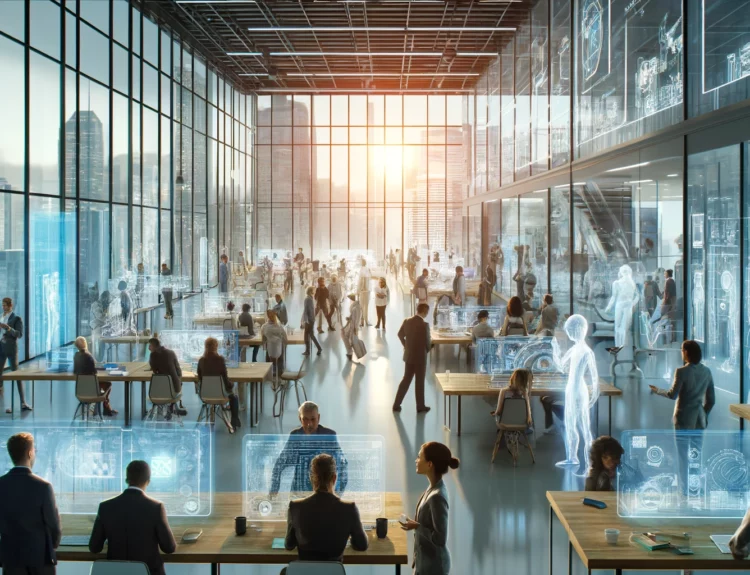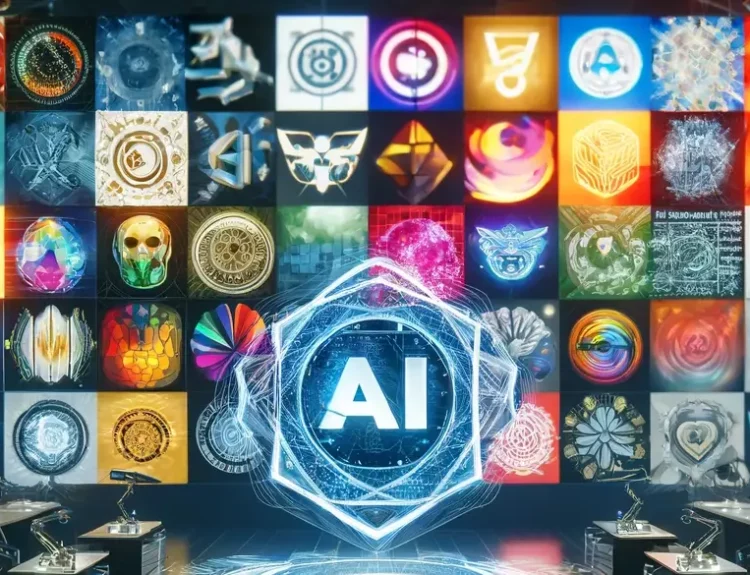Introduction
In the age of rapid technological advancement, the question looms large: will artificial intelligence (AI) replace computer scientists? It’s a tantalizing notion, one that conjures images of a future where machines reign supreme, relegating human expertise to obsolescence. Yet, as we delve into the intricacies of this debate, it becomes clear that the answer is far from straightforward.
Join us on a journey as we unravel the myth of AI replacing computer scientists, exploring the nuances of technology, human ingenuity, and the boundless possibilities that lie ahead. Strap in, dear reader, for an exploration that challenges assumptions, ignites curiosity, and sheds light on the intricate dance between AI and the minds that conceive it.
Understanding AI and Computer Science
Before delving into the debate surrounding the potential replacement of computer scientists by AI, it’s essential to grasp the fundamental concepts of both artificial intelligence (AI) and computer science. At its core, AI encompasses the development of systems and algorithms that simulate human intelligence, enabling machines to perform tasks that typically require human cognition, such as learning, reasoning, and problem-solving. On the other hand, computer science is a broader discipline that encompasses the study of computational systems, algorithms, and the principles underlying the design and operation of computers.
While AI represents a subset of computer science focused on intelligent behavior, the two fields are deeply intertwined, with advancements in one often driving progress in the other. By understanding the foundations of AI and computer science, we lay the groundwork for a more nuanced exploration of their relationship and the implications it holds for the future of technology and human society.

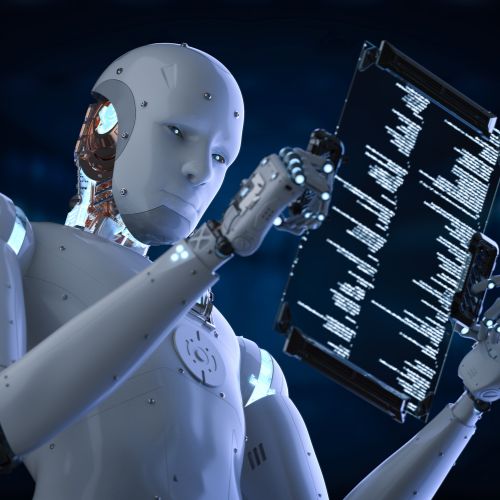
The Myth of AI Replacing Computer Scientists
In recent years, speculation has swirled around the notion that AI, with its exponential growth and capabilities, may eventually replace human computer scientists altogether. This myth has been fueled by sensational headlines and dystopian narratives, painting a picture of a future where machines take over the roles and responsibilities traditionally held by humans in the field of computer science.
Proponents of this idea often cite the rapid advancements in AI technology, the proliferation of automation, and the increasing complexity of algorithms as evidence of an impending paradigm shift. However, upon closer examination, it becomes clear that the notion of AI replacing computer scientists is more myth than reality. While AI undoubtedly represents a powerful tool in the arsenal of computer scientists, it is but one component of a broader ecosystem that relies heavily on human creativity, intuition, and expertise.
To understand why AI is unlikely to replace computer scientists, we must first dispel some of the common misconceptions surrounding this myth and examine the unique strengths and capabilities that humans bring to the table in the field of computer science.
Why AI Won’t Replace Computer Scientists
Despite the allure of the idea that AI could replace computer scientists, a closer examination reveals several compelling reasons why this scenario is unlikely to unfold. First and foremost, while AI has made significant strides in recent years, it still lacks the nuanced understanding, creativity, and problem-solving abilities that are inherent to human intelligence. While AI algorithms can process vast amounts of data and perform specific tasks with impressive speed and accuracy, they often lack the flexibility and adaptability required to tackle novel challenges and unexpected situations.
Moreover, the field of computer science is constantly evolving, with new technologies, methodologies, and paradigms emerging at a rapid pace. Computer scientists play a crucial role in driving this innovation, leveraging their expertise to develop new algorithms, optimize existing systems, and push the boundaries of what’s possible in the realm of technology. Additionally, the human element of computer science cannot be overstated.
Computer scientists bring a unique perspective, intuition, and creativity to their work, enabling them to approach problems from multiple angles and develop elegant solutions that transcend the capabilities of AI algorithms alone. While AI undoubtedly has the potential to augment and enhance the work of computer scientists, it is unlikely to replace the human element entirely. Instead, the future of AI and computer science is likely to be characterized by collaboration and synergy, with humans and machines working together to achieve feats that neither could accomplish alone.
The Future of AI and Computer Scientists
Looking ahead, the future of AI and computer scientists is both exciting and uncertain. While the rapid advancements in AI technology may raise questions about the role of human computer scientists, they also present new opportunities for collaboration and innovation. As AI continues to evolve, it is likely to become an increasingly powerful tool in the arsenal of computer scientists, enabling them to tackle complex problems more efficiently and effectively than ever before.
However, the human element of computer science will remain crucial, as computer scientists bring unique skills, insights, and perspectives to their work that cannot be replicated by AI alone. Moreover, the ethical, social, and philosophical implications of AI will continue to shape the field of computer science, raising important questions about privacy, bias, and the impact of automation on society.
Ultimately, the future of AI and computer scientists is likely to be characterized by collaboration, creativity, and innovation, as humans and machines work together to push the boundaries of what’s possible in the realm of technology. By embracing the opportunities and challenges that lie ahead, computer scientists can help shape a future where AI and human ingenuity combine to create a world that is smarter, more connected, and more equitable for all.
Conclusion
As we navigate the ever-changing landscape of technology, it’s essential to remain mindful of the ethical, social, and philosophical implications of AI. By fostering open dialogue, embracing diversity, and prioritizing responsible innovation, we can ensure that the benefits of AI are maximized while mitigating potential risks and challenges.
At Verdict, we’re committed to shaping a future where AI and human ingenuity coexist harmoniously, empowering individuals and organizations to harness the full potential of technology for the betterment of society. Through our platform, we invite you to join us on this journey of discovery, collaboration, and innovation, as we work together to create a world that is smarter, more connected, and more equitable for all. Together, we can build a future where AI enhances the work of computer scientists, rather than replacing it, and where human creativity and innovation continue to thrive in the digital age.
